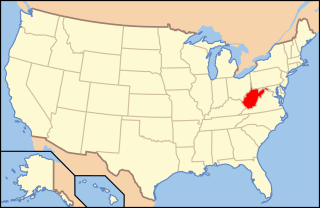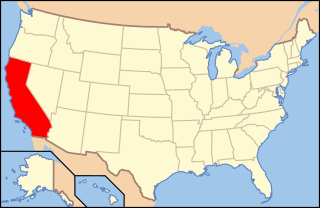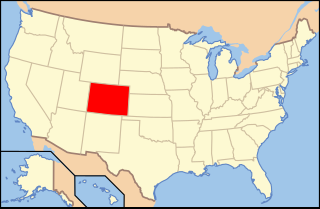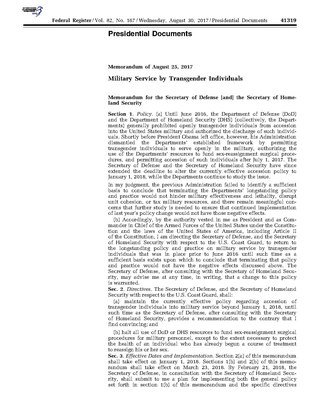Related Research Articles
Same-sex marriage in California has been legal since June 28, 2013. The U.S. state first issued marriage licenses to same-sex couples on June 16, 2008 as a result of the Supreme Court of California finding in the case of In re Marriage Cases that barring same-sex couples from marriage violated the Constitution of California. The issuance of such licenses was halted from November 5, 2008 through June 27, 2013 due to the passage of Proposition 8—a state constitutional amendment barring same-sex marriages. The granting of same-sex marriages recommenced following the U.S. Supreme Court's decision in Hollingsworth v. Perry, which restored the effect of a federal district court ruling that overturned Proposition 8 as unconstitutional.
Intermediate scrutiny, in U.S. constitutional law, is the second level of deciding issues using judicial review. The other levels are typically referred to as rational basis review and strict scrutiny.
In re Marriage Cases, 43 Cal. 4th 757 was a California Supreme Court case where the court held that laws treating classes of persons differently based on sexual orientation should be subject to strict judicial scrutiny, and that an existing statute and initiative measure limiting marriage to opposite-sex couples violate the rights of same-sex couples under the California Constitution and may not be used to preclude them from marrying.

Lesbian, gay, bisexual, and transgender (LGBT) people in the U.S. state of West Virginia face legal challenges not faced by non-LGBT persons. Same-sex sexual activity has been legal since 1976, and same-sex marriage has been recognized since October 2014. West Virginia statutes do not address discrimination on account of sexual orientation or gender identity; however, the U.S. Supreme Court's ruling in Bostock v. Clayton County established that employment discrimination against LGBT people is illegal.

The American Foundation for Equal Rights (AFER) was a nonprofit organization active in the United States from 2009 through 2015. The organization was established to support the plaintiffs in Hollingsworth v. Perry, a federal lawsuit challenging California's Proposition 8 under the Due Process and Equal Protection Clauses of the Fourteenth Amendment to the United States Constitution. AFER retained former United States Solicitor General Theodore B. Olson and David Boies to lead the legal team representing the plaintiffs challenging Proposition 8.
Hollingsworth v. Perry was a series of United States federal court cases that re-legalized same-sex marriage in the state of California. The case began in 2009 in the U.S. District Court for the Northern District of California, which found that banning same-sex marriage violates equal protection under the law. This decision overturned California ballot initiative Proposition 8, which had banned same-sex marriage. After the State of California refused to defend Proposition 8, the official sponsors of Proposition 8 intervened and appealed to the Supreme Court. The case was litigated during the governorships of both Arnold Schwarzenegger and Jerry Brown, and was thus known as Perry v. Schwarzenegger and Perry v. Brown, respectively. As Hollingsworth v. Perry, it eventually reached the United States Supreme Court, which held that, in line with prior precedent, the official sponsors of a ballot initiative measure did not have Article III standing to appeal an adverse federal court ruling when the state refused to do so.
Doe v. Reed, 561 U.S. 186 (2010), is a United States Supreme Court case which holds that the disclosure of signatures on a referendum does not violate the Petition Clause of the First Amendment to the United States Constitution.
The California foie gras law or Senate Bill 1520 is a California State statute that prohibits the "force feed[ing of] a bird for the purpose of enlarging the bird's liver beyond normal size" as well as the sale of products that are a result of this process (§ 25982). This outlawed the traditional method of producing foie gras in California. The law was enacted in 2004 and went into effect on July 1, 2012. The law has been challenged repeatedly since its enactment. The ninth circuit in 2022 upheld a lower court’s 2020 ruling which allowed residents to purchase foie gras for their individual use from out-of-state retailers.

Log Cabin Republicans v. United States, 658 F.3d 1162 was a federal lawsuit challenging the constitutionality of 10 U.S.C. § 654, commonly known as don't ask, don't tell (DADT), which, prior to its repeal, excluded homosexuals from openly serving in the United States military. The Log Cabin Republicans (LCR), an organization composed of lesbian, gay, bisexual, and transgender (LGBT) Republicans, brought the suit on behalf of LCR members who serve or served in the military and were subject to DADT.

California is seen as one of the most liberal states in the U.S. in regard to lesbian, gay, bisexual, transgender (LGBT) rights, which have received nationwide recognition since the 1970s. Same-sex sexual activity has been legal in the state since 1976. Discrimination protections regarding sexual orientation and gender identity or expression were adopted statewide in 2003. Transgender people are also permitted to change their legal gender on official documents without any medical interventions, and mental health providers are prohibited from engaging in conversion therapy on minors.

Lesbian, gay, bisexual, and transgender (LGBT) persons in the U.S. state of Colorado enjoy most of the same rights as non-LGBT people. Same-sex sexual activity has been legal in Colorado since 1972. Same-sex marriage has been recognized since October 2014, and the state enacted civil unions in 2013, which provide some of the rights and benefits of marriage. State law also prohibits discrimination on account of sexual orientation and gender identity in employment, housing and public accommodations and the use of conversion therapy on minors. In July 2020, Colorado became the 11th US state to abolish the gay panic defense.

Lesbian, gay, bisexual, and transgender (LGBT) people in the U.S. state of Oregon have the same rights and responsibilities as non-LGBT people. Same-sex sexual activity is legal in Oregon, and same-sex marriage has been legal in the state since May 2014 when a federal judge declared the state's ban on such marriages unconstitutional. Previously, same-sex couples could only access domestic partnerships, which guaranteed most of the rights of marriage. Additionally, same-sex couples are allowed to jointly adopt, and discrimination based on sexual orientation and gender identity in the areas of employment, housing and public accommodations is outlawed in the state under the Oregon Equality Act, enacted in 2008. Conversion therapy on minors is also illegal.

Lesbian, gay, bisexual, and transgender (LGBT) persons in the U.S. commonwealth of Kentucky still face some legal challenges not experienced by other people. Same-sex sexual activity is legal in Kentucky. Same-sex couples and families headed by same-sex couples are not eligible for all of the protections available to opposite-sex married couples. On February 12, 2014, a federal judge ruled that the state must recognize same-sex marriages from other jurisdictions, but the ruling was put on hold pending review by the Sixth Circuit. Same sex-marriage is now legal in the state under the U.S. Supreme Court ruling in Obergefell v. Hodges. The decision, which struck down Kentucky's statutory and constitutional bans on same-sex marriages, and all other same sex marriage bans elsewhere in the country, was handed down on June 26, 2015.

Sevcik v. Sandoval is the lead case that successfully challenged Nevada's denial of same-sex marriage as mandated by that state's constitution and statutory law. The plaintiffs' complaint was initially filed in the U.S. District Court for the District of Nevada on April 10, 2012, on behalf of several couples denied marriage licenses. These couples challenged the denial on the basis of the U.S. Constitution's Fourteenth Amendment guarantee of equal protection.

Kitchen v. Herbert, 961 F.Supp.2d 1181, affirmed, 755 F.3d 1193 ; stay granted, 134 S.Ct. 893 (2014); petition for certiorari denied, No. 14-124, 2014 WL 3841263, is the federal case that successfully challenged Utah's constitutional ban on marriage for same-sex couples and similar statutes. Three same-sex couples filed suit in March 2013, naming as defendants Utah Governor Gary R. Herbert, Attorney General John Swallow, and Salt Lake County Clerk Sherrie Swensen in their official capacities.

De Leon v. Perry was a federal lawsuit challenging Texas marriage law, specifically the state's constitutional ban on same-sex marriage and corresponding statutes. A U.S. district court ruled in favor of the plaintiff same-sex couples on February 26, 2014, granting their motion for a preliminary injunction. The state defendants filed an interlocutory appeal before the United States Court of Appeals for the Fifth Circuit, as the disposition on the motion was not a final ruling in the case. On April 14, 2014, the plaintiffs filed a motion for an expedited hearing, which was denied on May 21, 2014. The plaintiffs filed another motion for an expedited hearing on October 6, 2014, after the Supreme Court of the United States denied appeals in other marriage equality cases, and the motion was granted on October 7, 2014, setting a hearing for November 2014. However, on October 27, 2014, the Fifth Circuit set oral arguments for January 9, 2015.

Latta v. Otter is a case initiated in 2013 in U.S. federal court by plaintiffs seeking to prevent the state of Idaho from enforcing its ban on same-sex marriage. The plaintiffs won in U.S. District Court. The case was appealed to the Ninth Circuit Court of Appeals, which heard this together with two related cases–Jackson v. Abercrombie, and Sevcik v. Sandoval.

Wolf v. Walker is a federal lawsuit filed in February 2014 that challenged Wisconsin's refusal to grant marriage licenses to same-sex couples, its refusal to recognize same-sex marriages established in other jurisdictions, and related statutes. In June 2014, Judge Barbara Crabb of the U.S. District Court for the Western District of Wisconsin ruled for the plaintiffs. And in the week before she stayed her decision county clerks in 60 of the state's 72 counties issued marriage licenses to same-sex couples and some performed marriage ceremonies for them. The state appealed her decision to the Seventh Circuit Court of Appeals, which affirmed her opinion in a unanimous decision on September 4. The state requested a writ of certiorari from the U.S. Supreme Court, which was denied on October 6. Same-sex marriages resumed after the Seventh Circuit issued its mandate the next day.

The Presidential Memorandum on Military Service by Transgender Individuals, officially the Presidential Memorandum for the Secretary of Defense and the Secretary of Homeland Security, is the 27th presidential memorandum signed by U.S. President Donald Trump on August 25, 2017. The intent was to prevent transgender people from serving in the U.S. military, on the basis that they would be a financial burden due to sex reassignment procedures and associated costs. Federal courts delayed the implementation of this rule by issuing four injunctions. On January 22, 2019, however, the U.S. Supreme Court allowed the Trump administration's ban to take effect.

Conversion therapy is the pseudoscientific practice of attempting to change a person's sexual orientation or gender identity. As of February 2023, twenty-three countries have bans on conversion therapy, eight of them ban the practice by any person: Canada, Ecuador, France, Germany, Greece, Malta, New Zealand and Spain; seven ban its practice by medical professionals only; Albania, Brazil, India, Israel, Portugal, Vietnam and Taiwan; another eight: Argentina, Chile, Fiji, Nauru, Paraguay, Samoa, Switzerland, and Uruguay have indirect bans in that diagnoses based solely on sexual orientation or gender identity are banned without specifically banning conversion therapy, this effectively amounts to a ban on health professionals since they would not generally engage in therapy without a diagnosis. In addition, some jurisdictions within Australia, Mexico and the United States also ban conversion therapy. In China and South Africa case law has found conversion therapy to be unlawful. Bills banning conversion therapy are being considered in Ireland, Mexico, Poland, Belgium, Netherlands, Austria, Cyprus, and the United Kingdom.
References
- ↑ Raftery, Isolde (December 5, 2012). "Therapists defend gay conversion counseling: 'You can't say gay once, gay always' josephnicolosi.com Joseph Nicolosi of Encino, Calif. has been practicing sexual orientation change therapy for 25 years". NBC News . Retrieved 17 April 2013.
- ↑ "California law banning gay 'conversion therapy' put on hold". CNN . December 4, 2012. Retrieved 17 April 2013.
- ↑ Keen, Lisa (December 6, 2012). "Mixed decisions in gay therapy ban suits". Bay Area Reporter. Retrieved 17 April 2013.
- ↑ Wetzstein, Cheryl (April 15, 2013). "Law on sex orientation therapy for youths heads to court". The Washington Times . Retrieved 17 April 2013.
- ↑ Gullo, Karen (April 17, 2013). "California Seeks to Enforce Ban on Gay Conversion Therapy". Bloomberg Businessweek . Archived from the original on June 28, 2013. Retrieved 17 April 2013.
- ↑ "Ninth Circuit Court of Appeals upholds California law banning LGBT conversion therapy". Equality On Trial. August 29, 2013.
- ↑ "Case: Pickup et al. v. Brown et al. and Welch et al. v. Brown et al". National Center for Lesbian Rights. 2013-09-07. Retrieved 2018-06-15.
- ↑ https://www.supremecourt.gov/opinions/17pdf/16-1140_5368.pdf [ bare URL PDF ]
- ↑ https://media.ca11.uscourts.gov/opinions/pub/files/201910604.pdf [ bare URL PDF ]